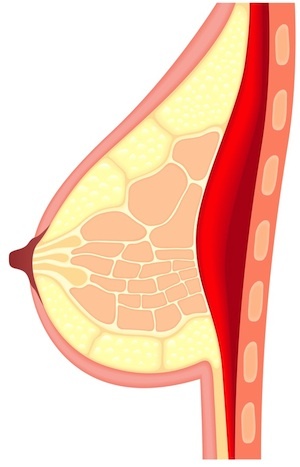Iodine and Breast Health: 6 Things You Need to Know |  |
| Iodine and Breast Health: 6 Things You Need to Know Posted: 26 Nov 2013 04:09 PM PST  Iodine isn’t only required by the thyroid, your entire body needs it. In fact, you might say that your body requires iodine the way a car requires oil — it’s simply necessary for the entire system to function properly. Many people don’t realize that female breast tissue has a greater concentration of iodine than the thyroid gland… heck, many don’t know at all that healthy breasts require iodine. It’s true, and when breast tissue has low iodine levels, health problems can follow. Let’s take a look at the top 6 things you need to know regarding iodine and its impact on breast health.
1. Iodine Deficiency is a ProblemIodine deficiency is a problem that affects up to 40% of the world’s population, including people in America. One of the primary causes is inadequate iodine intake. In the past, food was a source of iodine. However, the addition of iodine has steady declined for decades. Bread is a perfect example. Until 1980, iodine was used to condition dough, it was then substituted with bromide, a toxic halogen that offers no benefits and competes with iodine for absorption. Fluoride is example, it’s a common, toxic halogen that’s present in many water supplies; it too negatively affects iodine absorption. The decline in iodine consumption has coincided with an increase in health problems that include (but are not limited to) breast disease, certain cancers, thyroid impairment and developmental problems in children. 2. Healthy Breasts Need IodineEvery cell, organ, and system in the human body needs iodine, this especially applies to a woman’s breasts. Breast tissue has a greater concentration of iodine than the thyroid and the same iodine-transporting proteins used by the thyroid gland. [1] [2] In healthy breast tissue, iodine acts as a potent antioxidant. [3] Conversely, iodine deficient breast tissue is susceptible to increased lipid oxidation, a contributor to many diseases — including cancer. [4] [5] [6] [7] 3. What is Fibrocystic Breast Disease?Fibrocystic breast disease is an extremely common and underreported condition in which hormonally influenced cysts develop in the breast tissue. [1] The cysts, which can cause breast pain and tenderness — especially before menstruation, are fairly easy to detect. In fact, they’re most often detected during at-home examinations and are a frequent source of immediate anxiety for the women who discover them and fear the worst — breast cancer. Although fibrocystic breast disease itself is often benign, the New England Journal of Medicine has reported that it is a risk factor for breast cancer. [8] 4. Fibrocystic Breast Disease is Linked to Iodine DeficiencyHealthy breasts are reliant on adequate iodine levels. Without it, breast tissue is susceptible to estrogenic stimulation. This can lead to the production of microcysts, and they can lead to fibrocystic breast disease. [8] Animal studies have shown, directly, that depriving breast tissue of iodine is an immediate catalyst for fibrocystic breast disease. [9] [10] [11] 5. Adequate Iodine Promotes Breast HealthAlthough birth control is sometimes used to shrink cysts, many women prefer to avoid the associated health risks and rely on other measures to promote breast health, such as iodine supplementation. Iodine is very safe and adequate levels are a must for normal breast health. [12] A 1993 study reported that iodine supplementation had produced reduced indications of fibrocystic breast disease! [13] 2004 research found that 50% of women who experienced breast tenderness due to fibrocystic disease had an improvement in their situation after iodine supplementation. [14] Many women are unaware of this, and, unfortunately, the benefits of iodine are routinely glossed over by conventional physicians. 6. Adequate Iodine is Even More Important When Breast FeedingA nursing mother doesn’t only need nutrition to support her own needs, but those of her developing child as well. Just as iodine is important for breast health, iodine is equally important for normal brain development in children. Iodine deficiency is, in fact, the number one cause of developmental problems. Iodine is crucial for a newborn brain and breast milk is the perfect means for supplying iodine to a nursing infant. [15] Iodine: Are You Getting Enough?Getting enough iodine is a product of eating foods that contain iodine and, for many people, also taking supplemental iodine. There are several forms of iodine, some are more beneficial than others. There are tests that can determine if you need iodine and if you do, it’s best to compare iodine supplements to make an educated decision as to which is the best for you. -Dr. Edward F. Group III, DC, ND, DACBN, DCBCN, DABFM References:
The post Iodine and Breast Health: 6 Things You Need to Know appeared first on Natural Health & Organic Living Blog. |
| You are subscribed to email updates from Natural Health & Organic Living Blog To stop receiving these emails, you may unsubscribe now. | Email delivery powered by Google |
| Google Inc., 20 West Kinzie, Chicago IL USA 60610 | |
No comments:
Post a Comment